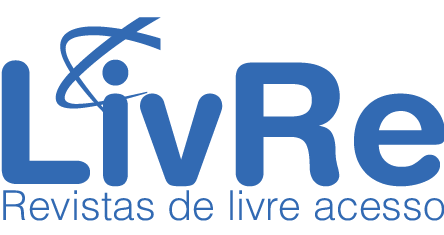THE FIELDWORK IN HYDROGRAPHIC BASIN IN GEOGRAPHY TEACHING AND THE PHYSICAL-NATURAL COMPONENTS
DOI:
https://doi.org/10.46789/edugeo.v10i19.723Abstract
The main objective of this article is to present the teaching strategy of fieldwork in hydrographic basin as a methodological proposal to enhance the mobilization of the physical-natural components. The conception of fieldwork developed in this investigation is based on a procedural, critical and participatory approach. It is procedural because it establishes a set of didactic sequences in the teacher’s school planning, namely, pre-field, field and post-field. It is critical when developing investigative mental operations that corroborate in the questioning and reflective thinking with schoolchildren. And, finally, it is participatory because it develops the joint organization of students in planning, research and registration during the realization of this teaching strategy. It was guided by qualitative research in education associated with the participant research genre, by involving the researcher and investigated subjects in a public high school environment in the city of Porangatu-GO. The investigative path revealed that the development of fieldwork in the hydrographic basin of the Barreiro-GO stream potentiated the construction of themes, contents and physical-natural components linked to the relief, hydrographic network and environmental impacts in School Geography. The fieldwork proposal developed a vision of integration supported by the conjunction of the concept of landscape when articulating the space experienced by students in reading the world, recognizing them as active subjects of their process of knowledges apprehension.
Keywords
Fieldwork, Teaching strategy, Hydrographic basin, Physical-natural components
Downloads
Downloads
Published
How to Cite
Issue
Section
License
Proposta de Aviso de Direito Autoral Creative Commons
1. Declaro que o presente artigo é original, não tendo sido submetido à publicação em qualquer outro periódico nacional ou internacional, quer seja em parte ou em sua totalidade. Declaro, ainda, que uma vez publicado na Revista Brasileira de Educação em Geografia, o mesmo jamais será submetido por mim ou por qualquer um dos demais co-autores a qualquer outro periódico. E declaro estar ciente de que a não observância deste compromisso submeterá o infrator a sanções e penas previstas na Lei de Proteção de Direitos Autorias (Nº9609, de 19/02/98)
2. A Revista Brasileira de Educação em Geografia tambem segue a "Proposta de Política para Periódicos de Acesso Livre".
Autores que publicam nesta revista concordam com os seguintes termos:
- Autores mantém os direitos autorais e concedem à revista o direito de primeira publicação, com o trabalho simultaneamente licenciado sob a Licença Creative Commons Attribution que permite o compartilhamento do trabalho com reconhecimento da autoria e publicação inicial nesta revista.
- Autores têm autorização para assumir contratos adicionais separadamente, para distribuição não-exclusiva da versão do trabalho publicada nesta revista (ex.: publicar em repositório institucional ou como capítulo de livro), com reconhecimento de autoria e publicação inicial nesta revista.
- Autores têm permissão e são estimulados a publicar e distribuir seu trabalho online (ex.: em repositórios institucionais ou na sua página pessoal) a qualquer ponto antes ou durante o processo editorial, já que isso pode gerar alterações produtivas, bem como aumentar o impacto e a citação do trabalho publicado (Veja O Efeito do Acesso Livre).







